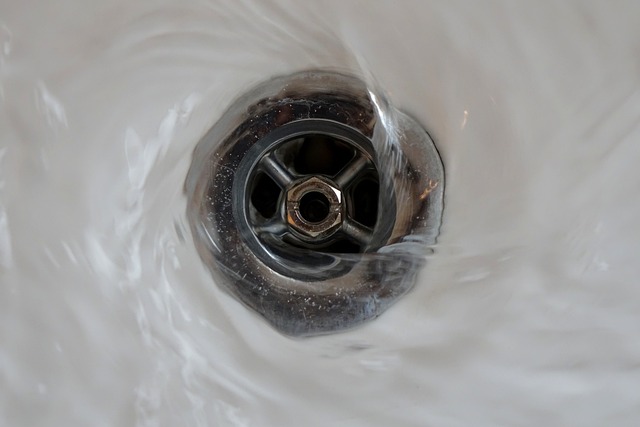Gurgling sinks and slow drains signal blocked pipes, caused by hair, grease, or tree roots. Early detection is key to preventing plumbing disasters. Use DIY methods for minor clogs but call a pro for severe cases like stopped drainage or backups. Regular maintenance helps avoid costly emergency repairs.
Are those gurgling sounds in your sink more than just an annoyance? They could be signs of a clogged drain, a common household issue with potential plumbing implications. This article delves into the mysteries behind these gurgles, unraveling the causes and offering insights on DIY solutions versus professional help. Understanding the underlying issues is key to maintaining smooth water flow and averting more serious plumbing problems, especially when addressing the telltale signs of a clogged drain.
- Understanding the Gurgling Sounds: Unveiling the Clogged Drain Mystery
- Common Causes of Blocked Drains and How They Affect Water Flow
- DIY Solutions vs Professional Help: When to Call a Plumber
Understanding the Gurgling Sounds: Unveiling the Clogged Drain Mystery

Gurgling sounds in your sink, especially during or after running water, are often signs of a clogged drain. This mysterious gurgling is more than just an annoying noise; it’s your plumbing system’s way of telling you something isn’t quite right. When water flows down the drain, it creates a vacuum that sucks surrounding air into the pipes, creating those characteristic gurgles. But what causes the blockage in the first place? It could be a buildup of hair, soap scum, grease, or even hard-to-detect substances like tree roots that have found their way into your pipes.
Understanding these signs is crucial for identifying a clogged drain early on. Neglecting these gurgling alerts can lead to more severe issues, like a completely blocked drain or even backups into your sink. Regular maintenance and promptly addressing any unusual noises or changes in water flow are essential steps to keep your drains running smoothly and prevent costly plumbing emergencies.
Common Causes of Blocked Drains and How They Affect Water Flow

Blocked drains are a common household issue, often signified by gurgling sounds and sluggish water flow. Understanding the causes behind these signs is key to addressing the problem effectively. One of the primary culprits is buildup of grease, food scraps, hair, and other debris in the pipes. These substances can solidify over time, forming clogs that obstruct water flow, leading to gurgling noises as water tries to force its way through.
Other common causes include tree roots infiltrating pipes, broken or damaged pipe structures, and improper disposal of items like sanitary products, wipes, or grease down the drain. These issues can cause significant disruptions in water flow, not only creating gurgling sounds but also leading to overflows and potential damage to plumbing systems. Prompt action is necessary when faced with such problems to prevent further complications.
DIY Solutions vs Professional Help: When to Call a Plumber

If you’re dealing with persistent gurgling sounds, it might be time to consider your options: DIY solutions or professional help. For minor issues, such as occasional slow drains or mild clogs, there are many at-home remedies available. Using a combination of hot water, baking soda, and vinegar can often clear out simple blockages. Plunging the drain is another common DIY solution that can be effective for softer clogs. However, if these methods fail or if you notice more severe signs of a clogged drain—like drains that completely stop flowing or back up with foul-smelling water—it’s best to call in a professional plumber. They have the tools and expertise to tackle stubborn clogs that home remedies can’t handle.
Understanding the gurgling sounds in your sink can help identify potential signs of a clogged drain early on. By recognizing common causes and the impact on water flow, you can decide whether to opt for DIY solutions or when it’s time to call a plumber. Regular maintenance and prompt action can prevent costly plumbing issues, ensuring your drains stay clear and efficient.
